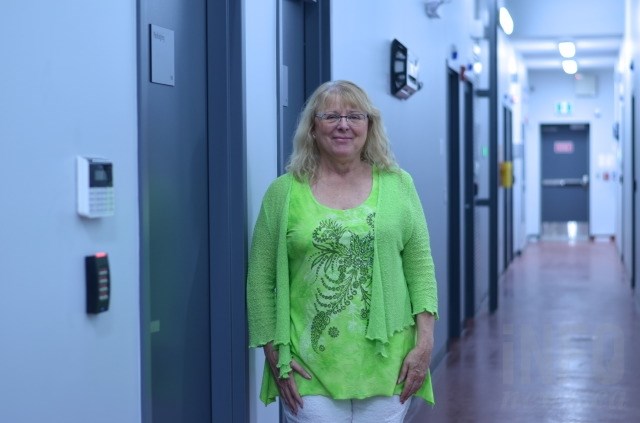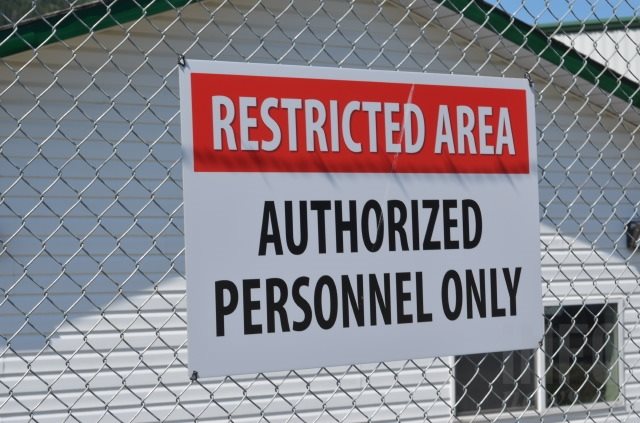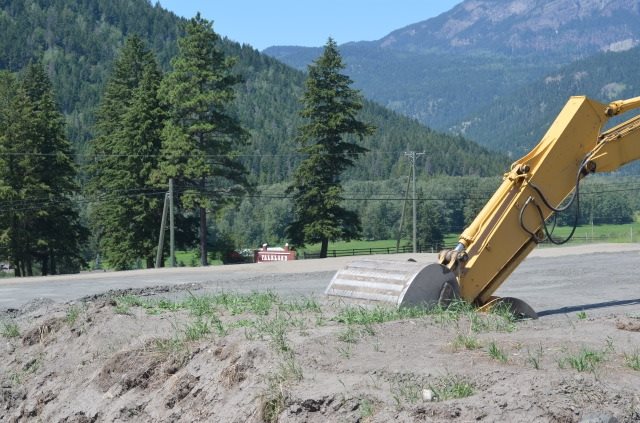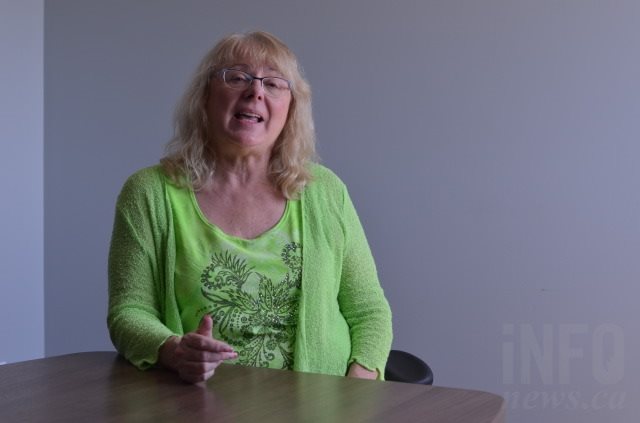An inside look at one of the Okanagan's first licensed marijuana production facilities

FALKLAND - Just off Highway 97 on the way to Falkland is a large, warehouse-style building surrounded by a chainlink fence with signs that read ‘Warning- Video Camera Surveillance.’ Behind the building, and within view of passing motorists, are sections of bare, flattened land where greenhouses will eventually grow cannabis.
The property represents the Vernon area’s first Health Canada licensed marijuana production facility. PhyeinMed Inc. joined the list of Canada’s LPs (licensed producers) on Friday, July 20. That means it can finally start cultivating cannabis.
Not long ago, marijuana grow-ops kept a decidedly low profile, but PhyeinMed founder and CEO Debra Senger says their business is the talk of the town, and they definitely aren’t hiding. Does she care that people will be able to see their marijuana greenhouses from the road?
“No, it’s legal,” she says. “Everyone knows we are here.”
She says there’s been lots of excitement over the project in the small town of Falkland since work started on the building — a former cabinetry workshop — back in January.
“We’ve had people just pull right in asking if we’re hiring,” Senger says. “We even go to the pub and I get business cards or notes slipped to me all the time.”
The interest — and local talent — means PhyeinMed pretty much has all the workers it needs already.
There may not be any plants yet in the large 15,500 square foot processing facility, but it's ready to start production and welcome its workers. When you walk in through the secured perimeter, you’ll find large, state of the art locker rooms and washrooms where the facility’s employees can get changed and even take a shower if they smell a little fragrant after work. Senger expects there will be roughly 20 staff on site for phase one, and potentially more as the business expands.
Every passageway in the building is a mantrap or double door airlock requiring a special keycard to get access. Video cameras are positioned in every room and hallway, leaving no inch of the facility unrecorded.
The building represents years of work for Senger and her team, who have successfully navigated the labour-intensive process of acquiring a license.
“It’s a gruelling, expensive process,” Senger says.
There have been many documents to prepare and building checklists to adhere to, all against the backdrop of an emerging and constantly changing industry, Senger says.
The anticipated cannabis output of the facility will be more than 4,000 kilograms of flower per year. Sprout-sized pot plants will be cultivated indoors in a nursery with the latest in technology maintaining the perfect balance of humidity, temperature and airflow. Plants will then be moved into greenhouses — a lower cost style of production because it uses less electricity — to grow to maturity. All processing will happen inside the facility, including trimming by machines and then packaging before being stored in a secure room fortified with steel mesh walls and ceilings. The facility is also equipped with a roller so joints can be made on site. The products will go to government-run stores for sale.
Senger was inspired to join the cannabis industry after her husband started using cannibidiol to treat cancerous tumours in his liver.
“He was at the point where he was still undergoing chemo treatments and they just weren’t working,” she says. “I started to do an incredible amount of research on the medical benefits of cannibidiol and the info I was getting was that there was a real chance it might make a difference for him.”
Prior to taking cannibidiol, his tumours were so large he was at risk of not being eligible to receive a liver transplant. After taking it, the tumours shrunk and he was able to get a new liver. That was four years ago.
Senger will never know for sure if it was the cannibidiol or one of his 14 chemo treatments that shrunk the tumours, but once she’d been exposed to all the medical research around marijuana, she wanted to get involved. Coming from a corporate position in Calgary, she wasn’t scared to start a company of her own from the ground up.
She began looking for properties and as soon as she saw the Falkland location, she knew it was the one. Since then, she says the community has only reinforced it as the right decision.
“We feel like they’re raising a barn for us out here in Falkland. We have everybody popping in asking if they can help,” she says.
There are currently 25 licensed producers in B.C. PhyeinMed is co-owned by Heritage Cannabis Holdings Corp., which holds 75 per cent of the company.
To contact a reporter for this story, email Charlotte Helston or call 250-309-5230 or email the editor. You can also submit photos, videos or news tips to the newsroom and be entered to win a monthly prize draw.
We welcome your comments and opinions on our stories but play nice. We won't censor or delete comments unless they contain off-topic statements or links, unnecessary vulgarity, false facts, spam or obviously fake profiles. If you have any concerns about what you see in comments, email the editor in the link above.






